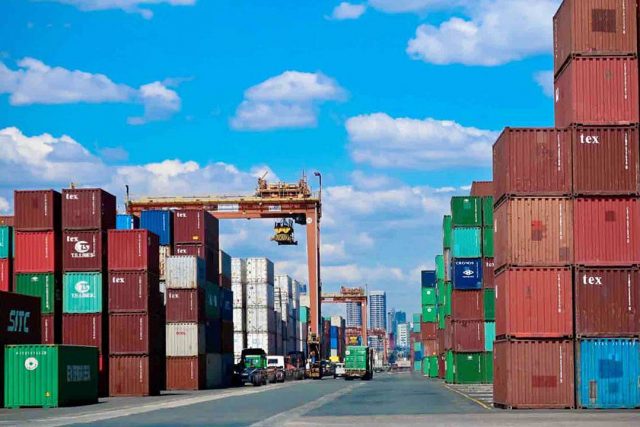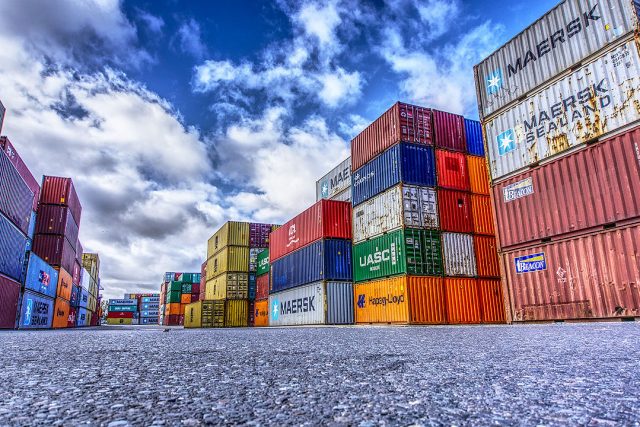Trade gap narrows by 9% in 2023
The country’s trade-in-goods deficit narrowed by 9% in 2023 as exports and imports declined faster than government projections amid slowing demand.
Preliminary data from the Philippine Statistics Authority (PSA) on Friday showed merchandise exports dropped by 7.6% to $73.52 billion, more the revised 4% decline projected by the Development Budget and Coordination Committee (DBCC) for 2023. This was a reversal of the 6.5% growth in 2022.
Imports fell by 8.2% year on year to $125.95 billion in 2023, also below the 3% drop expected by the DBCC. It ended two straight years of annual growth in imports.
The full-year trade balance — the difference between the values of exports and imports — narrowed by 9.1% year on year to a $52.42-billion deficit from the $57.65-billion gap in 2022.
It was the lowest trade gap since the $42.19-billion gap recorded in 2021.
“Economic conditions were harder for the country last year. All major economies were moving on a lower growth trajectory and geopolitical tensions were at an escalating stage,” University of Asia and the Pacific (UA&P) Senior Economist Cid L. Terosa said in an email interview.
In December, the trade-in-goods deficit narrowed to $4.01 billion from the $4.51 billion deficit in the same month in 2022. This was the smallest gap in three months or since the $3.57 billion trade balance in September.
Union Bank of the Philippines, Inc. Chief Economist Ruben Carlo O. Asuncion said in a Viber message that the December trade shortfall was better than they expected.
“We expected a deficit of $4.6 billion, but actual December data yielded only $4 billion,” he said.
This as merchandise exports contracted by 0.5% year on year to $5.78 billion, slower than the 7.5% decline seen in the same month in 2022.This was the smallest contraction in four months.
By value, December export haul was the lowest in eight months or since the $4.91 billion recorded in April 2023.
Meanwhile, imports contracted by 5.1% to $9.79 billion in December, slower than the 9.4% decline in December 2022. The drop in imports December was the fastest in three months or since the 14.1% decline in September.
The import value was the lowest in eight months or since the $9.75 billion in April 2023.
“Although exports decline was at a slower pace year-on-year, seasonally adjusted data (month-on-month) was still a sequential decline, confirming persistent external trade weakness. Import performance was also weaker from the revised November print of +1.3% (previously 0%),” Mr. Asuncion said.
On a month-on-month seasonally adjusted basis, exports fell by 2.3% to $6.14 billion in December, making it the fourth straight month of contraction, matching the decline in September and the lowest since 10.1% decline in April 2023.
Imports contracted by 4.5% month on month to $10.33 billion, the lowest since the 3.3% contraction in September last year.
“December is usually a month when industries and firms close annual production, which makes demand for imported capital goods slower,” Mr. Terosa said.
By commodity, electronic products, which accounted for more than half of total exports, declined by 9.2% to $41.90 billion last year.
Semiconductors, which accounted for the bulk of electronic product sales, slipped by 6.4% to $33.67 billion.
Meanwhile, other manufactured goods inched up by 1.2% last year to $3.97 billion, followed by ignition wiring set and other wiring sets used in vehicles, aircraft and ships (up by 11.8% to $2.66 billion).
By import commodities, electronic products also slid by 18.7% to $26.63 billion in 2023, with semiconductors down by 21.6% to $18.83 billion.
Mineral fuels, lubricants and related materials fell by 16.3% to $19.92 billion.
On the other hand, transport equipment went up by 13.9% to $12.43 billion last year from $10.92 billion in 2022.
The United States was the top export destination for locally made products last year with a 15.7% share worth $11.54 billion. Exports to China accounted for a 14.8% share, followed by Japan (14.2%), and Hong Kong (12%).
On the other hand, China remained the country’s biggest source of imports with a 23.3% share worth $29.38 billion. Indonesia followed with a 9.1% share ($11.51 billion), and Japan with an 8.1% share ($10.26 billion).
“[Geopolitical] issues are definite factors largely affecting overall trade sentiment. At this point, our economic players are what you call in economics as ‘price-takers’ and we usually do not have much choice in the international market dynamics, specifically in trade of goods,” Union Bankís Mr. Asuncion said.
Mr. Terosa said the Philippines should continue to pursue trade and market diversification. “I believe diversification is key to successful trade, more than building our competitive and comparative advantages,” he said.
Mr. Asuncion does not see a fast recovery for trade in the short-term as the impact of high interest rates continue to be felt. “However, we expect the trade balance in 2024 to improve on the back of potential cheaper borrowing costs from a more dovish global central banks including our own,” he added.
The DBCC penciled in 5% and 7% growth for exports and imports, respectively, this year. — B.T.M. Gadon













 UP Ibalon was established by Bicolano UP students who persistently assembled students from the region during the height of Martial Law in 1974. Now on its 50th year, UP Ibalon commemorates its long journey of service rooted in our “Pusong Oragon” that defined our members’ excellence and competence as evident in our organizational activities and projects with the life-long goal of giving back to the masses, especially Bicolandia.
UP Ibalon was established by Bicolano UP students who persistently assembled students from the region during the height of Martial Law in 1974. Now on its 50th year, UP Ibalon commemorates its long journey of service rooted in our “Pusong Oragon” that defined our members’ excellence and competence as evident in our organizational activities and projects with the life-long goal of giving back to the masses, especially Bicolandia.